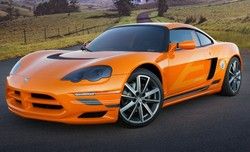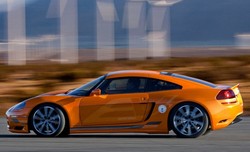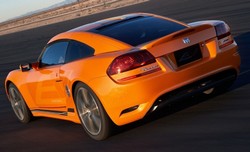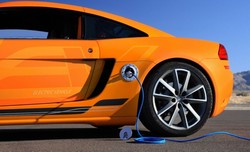RE: Detroit '09: Dodge Circuit EV
Monday 12th January 2009
Detroit '09: Dodge Circuit EV
Hard-charging Dodge Circuit is based on Lotus Europa
The Dodge Viper and Lotus Europa couldn’t be more different if they tried – but what would happen if they had a lovechild? Well, it might look something like this – the Dodge Circuit EV.
As the name suggests this is in fact an electric car and although the original concept was seen last year, Dodge has decided to give it more of a family face.
The new car has been unveiled at the Detroit Show and is obviously based around a Lotus Europa but is powered by a Tesla Roadster-style lithium-ion battery pack.
The car has a similar range of between 150 and 200 miles but could cost considerably less than the £90,000 Tesla. It is expected to go on sale in the US in 2010 and in the UK in 2011.
Discussion
kambites said:
XitUp said:
andy_b said:
honest question.... why isn't Hydrogen the future?
andy
The laws of thermodynamics.andy
It takes way more energy to make hydrogen than you can get back from burning it or using it in a fuel cell.
Then you have the £billions that would be needed for new transportation and storage infrastructure.
I don't know how the total efficiency between going, for example, "fossil fuel -> electricity -> grid -> hydrogen -> electricity -> kinetic energy" compares to burning the fossil fuel in the car, but I could believe it if I was told that either was more efficient.
From memory of the other bits, you'd need electricity -> hydrogen -> electricity to be about 80% efficient in order for using hydrogen to be more efficient overall. I have no idea what the real figure is though.
Gassing Station | General Gassing | Top of Page | What's New | My Stuff







